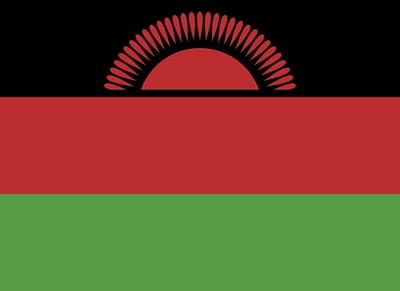Malawi - Human Rights Council - Death Penalty - September 2014
Country: Malawi
Issues: Death Penalty, Detention, Due Process and Fair Trial, International Advocacy, Legal Representation, Torture
Mechanism: UN Universal Periodic Review
Report Type: Stakeholder Report
The Advocates for Human Rights and the World Coalition Against the Death Penalty submitted a joint stakeholder report on the death penalty in Malawi to the U.N. Human Rights Council for Malawi’s second Universal Periodic Review (UPR). This report examines human rights violations in the judicial processes applicable to cases involving punishment by death.
The report addresses the following concerns:
- Murder and genocide are capital offenses in Malawi. Non-homicide capital offenses include treason, piracy, rape not resulting in death, robbery not resulting in death, burglary not resulting in death, and housebreaking. Since 1995, Malawi has in practice restricted application of the death penalty to those who commit murder. Nonetheless, as a matter of law the death penalty is not limited to the most egregious crimes.
- The length of pretrial detention is excessive in Malawi, depriving incarcerated persons of the right to a trial within a reasonable time. Detainees do not always have access to effective legal representation. Many public defenders are new lawyers-often hired directly from law school-who are under-qualified to work on capital cases.
- The Kafantayeni decision removed mandatory capital punishment for people convicted of treason or murder. Yet a vast majority of people sentenced under the now-abolished mandatory death penalty provisions have not been resentenced. More than 180 prisoners are entitled to be resentenced, but of those, only one person has been granted a resentencing hearing before the High Court.
- Malawi's death row conditions constitute cruel, inhuman, and degrading treatment. Almost all death row prisoners are held at Zomba Central Prison in southern Malawi, which was condemned in 1997 but is still used today.
The report includes the following recommendations:
- Abolish the death penalty and replace it with a sentence that is fair, proportionate, and respects international human rights standards;
- Conduct resentencing hearings for those individuals who previously received automatic death sentences after convictions for murder or treason;
- Systematically review prison conditions-especially at Zomba Central Prison-with the goal of relieving overcrowding and poor living conditions;
- Increase resources and personnel available to the justice system so there are sufficient judges, lawyers, and paralegals in order to minimize the sizable
backlog and reduce the pretrial detention periods to durations that comply
with international standards; - Reducing the maximum possible sentence from death to one that is fair,
proportionate, and respects international human rights standards; - Complete abolition of capital punishment; universal access to adequate
legal representation; - Provision of clean, safe, and appropriate prison conditions; and
- Regular monitoring of prison conditions.




